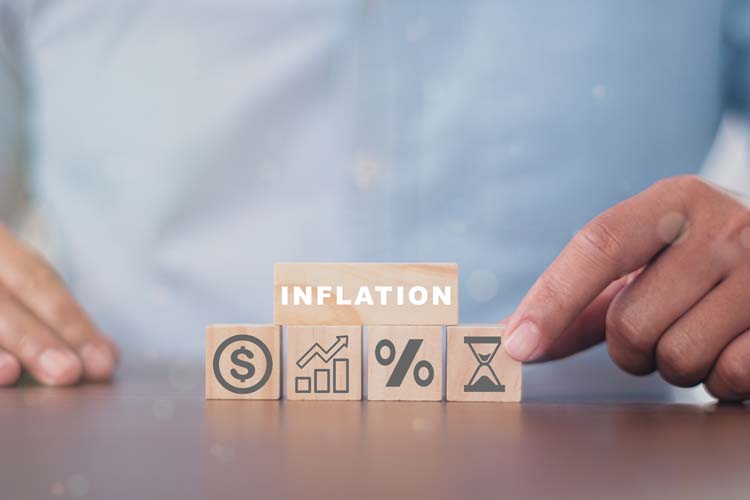Last Updated on 28/11/2023
Turkish economy between 2018 and 2023
Turkish Economy’s unorthodox model
From 2018 to 2020, the Turkish economy experienced an increase in employment and a drop in relative unemployment between 2018 and 2023. However, exports of services, such as travel and medical services, increased from $34 billion in 2018 to $120 billion in 2023. Just the tourism sector’s revenue increased from $30 billion to $60 billion. According to IMF forecasts, GDP increased from just under $800 billion at the end of 2018 to over $1 trillion in 2023. The unconventional strategy of decreasing interest rates supported growth despite problems like inflation and widening wealth inequality. Unexpectedly, currency devaluation stimulated exports, and a wealth transfer to entrepreneurship raised employment rates. During this time, economic management took a daring and unusual approach, with mixed results that are now the subject of analysis and discussion.
Inflation Challenge

Turkish economy is grappling with a significant economic challenge as inflation rates continue to rise. The Central Bank of the Republic of Türkiye (CBRT) has made substantial upward revisions to its year-end inflation projections for 2023, 2024, and 2025. The original forecast for 2023, which stood at 22.3%, has now been dramatically revised to 58%. This revision is attributed to several factors, including higher Turkish lira-denominated import prices, increased food prices, administered prices, unit labor costs, and a shift in the forecasting approach.
Hafize Gaye Erkan, the governor of the central bank, emphasized that exchange rate fluctuations led to a 7.5-point increase in the 2023 year-end inflation forecast and an 8.3-point increase for 2024. In response to the mounting inflation, the central bank raised its policy rate to 17.5%, though this measure was smaller than what the markets had anticipated. The situation became critical when annual inflation reached its highest point in 24 years, hitting 85.5% in October of the preceding year. Economists subsequently revised their year-end projections to as high as 60%. These developments underscore the complexities of managing inflation within a dynamic and rapidly changing economic environment in Turkey.
Between H2 2023 and 2024: The market slow continues
Exports anticipate a deceleration in the Turkish market starting from 2023 and lasting until Q2 2024. Several Turkish economic factors may contribute to this situation. They include the lasting impact of high inflation and higher interest rates. Besides, consumers’ cautious spending behavior is one of the main factors. Moreover, many individuals delay significant purchases, especially in the real estate sector, which is leading to reduced overall demand.
Furthermore, domestic challenges like unemployment and social inequality might also play a role in the predicted slowdown affecting the Turkish economy. Consequently, the rise in inflation rates and the central bank’s decision to raise interest rates to 17.5% came to contribute to the Turkish economy’s recovery. This interest rate hike is a continuation of a previous shift away from a low-rate policy. Governor Erkan’s commitment to reducing high inflation without causing structural damage to the real economy indicates a cautious approach that may contribute to slowing down the market in the short term.
New measures to adopt
Increasing interest rate

The increase in interest rates reflects the CBRT’s strategic shift in addressing the surging inflation. The recent rise to 17.5% is a more moderate action in comparison to the initial 650 basis points increase. While the central bank gradually elevated the policy rate, it has also committed to enhancing market functionality and aligning market rates with inflation expectations. Governor Erkan underlined that the bank’s decisions would have impact in data and principles of confidence, stability, and transparency. Although these interest rate hikes may slow down investment, they are considered essential for the Turkish economy’s stabilization. The central bank’s approach to managing interest rates and its coordination with fiscal policy will play a crucial role in shaping this period, potentially affecting both domestic and international investors.
Delayed Austerity Measures

In contrast to certain Western countries, Turkey is likely to introduce austerity measures at a later stage. These actions might involve cutting government spending, raising taxes, and implementing other fiscal tightening strategies. The central bank’s approach to inflation targeting through selective credit tightening suggests a potential reduction in bank lending. The objective is to maintain stable Turkish lira liquidity while avoiding excessive exchange rates and domestic demand. The recent increases in interest rates and quantitative tightening measures are likely to support foreign exchange stability, which will impact lending conditions. The timing, nature, and execution of these measures will be critical for Turkey’s medium to long-term economic stability. The government’s ability to strike a balance between austerity and growth will play a crucial role in determining the effectiveness of these policies. Besides, it will decide the future of the Turkish economy.
Hopes from the Newly Appointed Finance Minister:
The appointment of Treasury Minister Mehmet Şimsek raised expectations regarding several key areas. These include efforts to stabilize the Turkish lira and attract foreign direct investment mainly. Besides, he aims to implement more conventional economic policies, and enhance the independence of the central bank. All these actions should contribute to the Turkish economy recovery. During his previous term as Finance Minister, Simsek’s tenure was manifest by growth and stability. It was also characterized by tax reforms, fiscal consolidation, and structural improvements. His reputation in international money markets further adds to the belief that his leadership could serve as a catalyst for positive changes. Given the urgency of the economic stabilization, there is a sense of anticipation and optimism surrounding his appointment. However, the success of his tenure will largely hinge on his ability to strike a balance between the immediate need for stabilization and fostering long-term, sustainable economic growth.
2025 the year of the Turkish economy’s prosperity

According to experts, interest rates will start to decline in Q3 2024, recovering the market and economic momentum. The consumer demand would increase, especially in industries like real estate. To reach this forecast, the government’s policies and the flexibility of the private sector would be crucial. This spike in demand woul engage the focus on affordability, consumer confidence, and sustainable growth. The success of policies promoting consumer spending and business investment will probably be key factors in the eventual rebound of the Turkish economy.
Turkey’s attention will probably turn toward boosting wealth and sustainable development as a result of its underlying growth trends. Education, healthcare, affordable housing, and urban renewal could all play major roles in economic policy. These programs will not only encourage economic growth but also address social injustices and advance societal well-being. This era is likely to be characterized by a balanced strategy that integrates social advancement with economic prosperity. A more inclusive and prosperous society can be real with the help of private sector innovation. Investment as well as the government’s commitment to these objectives.



